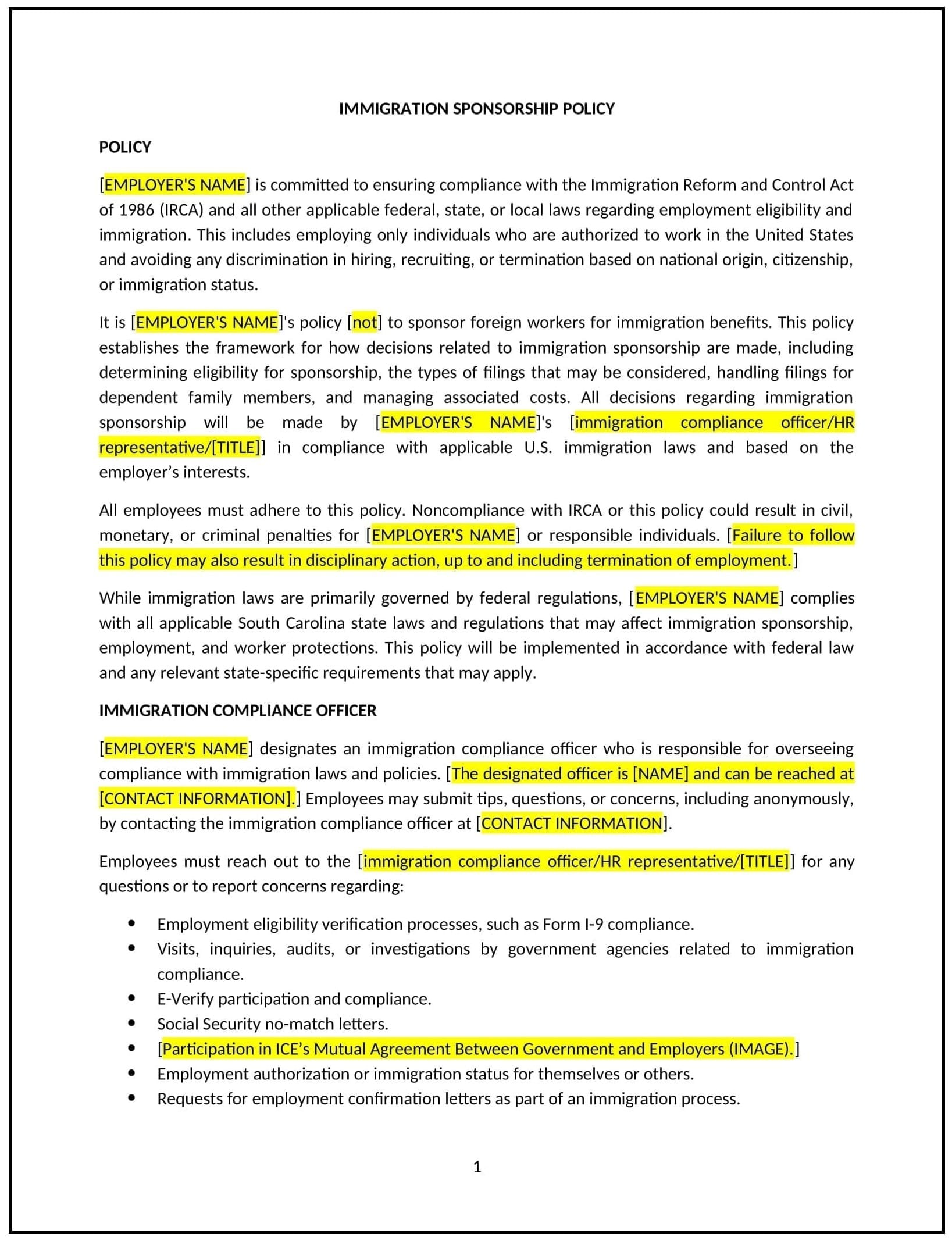Immigration sponsorship policy (South Carolina): Free template
Got contracts to review? While you're here for policies, let Cobrief make contract review effortless—start your free review now.

Customize this template for free
Immigration sponsorship policy (South Carolina)
This immigration sponsorship policy is designed to help South Carolina businesses establish guidelines for sponsoring foreign workers for employment-based visas. It outlines procedures for identifying eligible candidates, navigating the sponsorship process, and complying with federal immigration laws.
By adopting this policy, businesses can attract global talent, support workforce diversity, and align with legal requirements for immigration sponsorship.
How to use this immigration sponsorship policy (South Carolina)
- Define sponsorship criteria: Specify the types of visas the business is willing to sponsor, such as H-1B, L-1, or TN visas.
- Establish eligibility requirements: Outline the qualifications and skills required for sponsored positions.
- Set sponsorship procedures: Provide steps for initiating and managing the sponsorship process, including legal and documentation requirements.
- Address costs and timelines: Clarify who will bear the costs of sponsorship and the expected timelines for visa approval.
- Train HR and managers: Educate HR teams and hiring managers on the sponsorship process and their responsibilities.
- Review and update: Assess the policy annually to ensure it aligns with evolving immigration laws and business needs.
Benefits of using this immigration sponsorship policy (South Carolina)
This policy offers several advantages for South Carolina businesses:
- Attracts global talent: Expands the talent pool by enabling the hiring of qualified foreign workers.
- Supports workforce diversity: Brings diverse perspectives and skills to the workplace, enhancing innovation and problem-solving.
- Aligns with legal standards: Helps businesses comply with federal immigration laws and avoid penalties.
- Enhances competitiveness: Positions the business as an employer of choice for international candidates.
- Reduces risks: Minimizes the potential for errors or delays in the sponsorship process.
Tips for using this immigration sponsorship policy (South Carolina)
- Communicate the policy: Share the policy with HR teams, hiring managers, and potential candidates.
- Provide training: Educate HR teams and hiring managers on the sponsorship process and their responsibilities.
- Monitor adherence: Regularly review sponsorship cases to ensure compliance with the policy and legal requirements.
- Address issues promptly: Take corrective action if errors or delays occur in the sponsorship process.
- Update regularly: Assess the policy annually to ensure it aligns with evolving immigration laws and business needs.